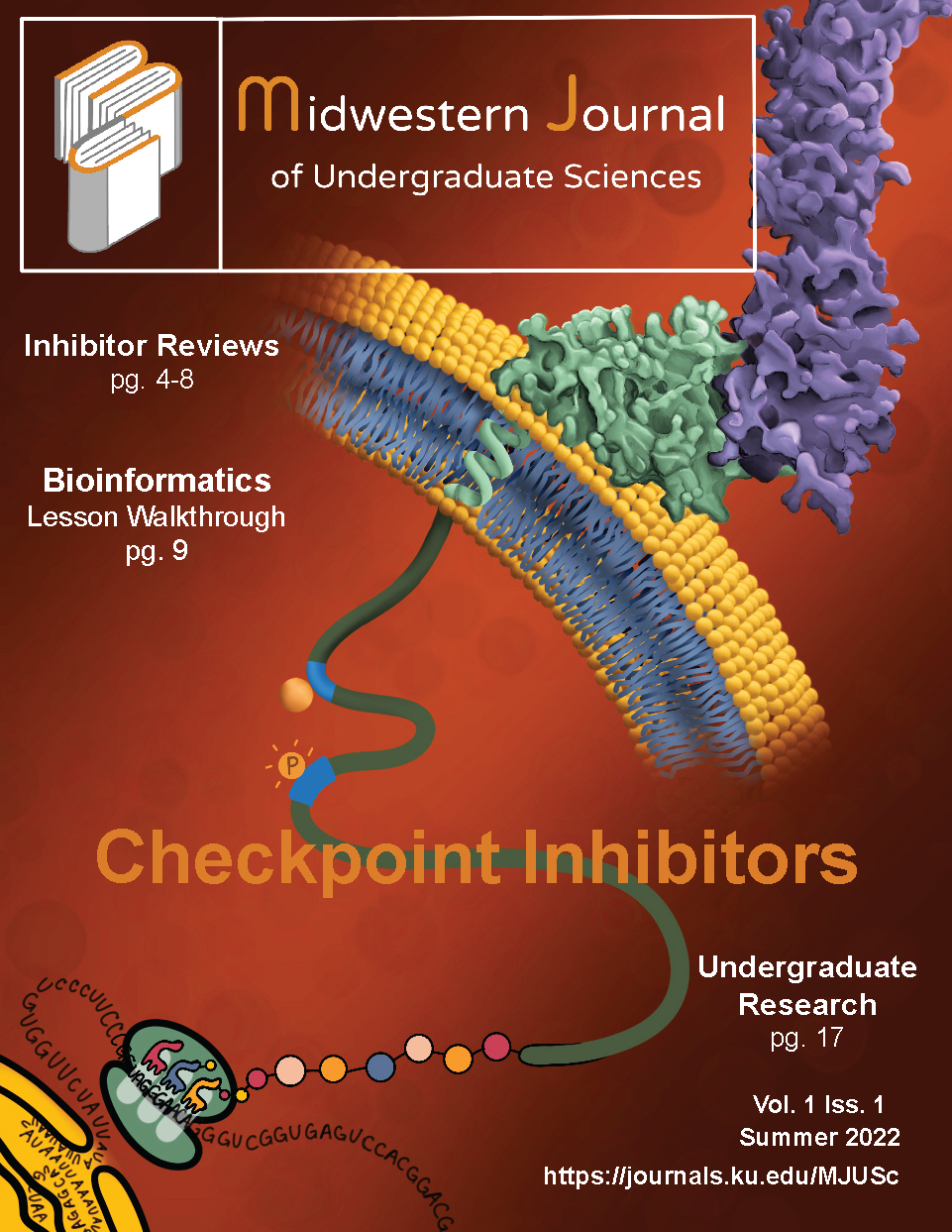Analyzing Jurkat T Cell Viability and T Cell Receptor Signaling in Tumor Microenvironments
DOI :
https://doi.org/10.17161/mjusc.v1i1.18559Mots-clés :
Jurkat, T Cell, TCR, Signaling, Tumor, Cancer, MicroenvironmentRésumé
The immune system is responsible not only for protection against foreign invaders (e.g., viruses and bacteria) but also against abnormal cell growth (e.g., cancer). Although the initiating causes of cancer are wide-ranging, one universal characteristic common to all is that healthy cells mutate in ways that dysregulate their growth and survival. Unchecked, these cells may grow and mutate uncontrollably, making immunosurveillance vital to maintaining a healthy organism. T cells recognize foreign antigens via their T Cell Receptors (TCRs). A sampling of all proteins made by the cell is presented to T cells in the context of Major Histocompatibility Complexes (MHCs) present on all nucleated cells. A successful interaction between a T cell and an MHC bearing a non-self peptide will initiate an immune response including TCR signaling and proliferation. Cells that avoid this recognition can grow into tumors. Interestingly, these tumors have been observed to exist in acidic microenvironments. One concern is that the acidic nature of the tumor microenvironment could negatively impact the interaction between the T cell and MHC molecule thereby reducing the efficacy of an immune response. We used Jurkat T cells as a model T cell line to evaluate the survival and immune signaling of T cells under low pH environments. We observed less total phosphorylation in the acidic conditions, however, the relative increase in phosphorylation above background was much greater under acidic conditions. These results indicate a qualitative change in T cells activation signals when exposed to an acidic environment.
Téléchargements
Publiée
Numéro
Rubrique
Licence

Ce travail est disponible sous licence Creative Commons Attribution - Pas d’Utilisation Commerciale 4.0 International.
© The Author(s)
This work is licensed under a Creative Commons Attribution-NonCommercial 4.0 International license.

